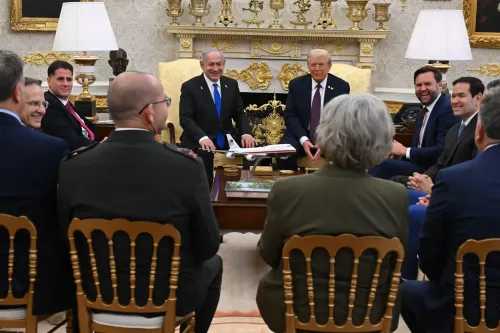Will Mexico's Plea for Consideration Affect New Vehicle Tariffs?

Synopsis
Key Takeaways
- Mexico's President is seeking US consideration on new vehicle tariffs.
- New tariffs could challenge trade relations.
- USMCA plays a crucial role in protecting Mexican exports.
- 85% of exports comply with USMCA rules.
- Ongoing discussions aim to mitigate economic impacts.
Mexico City, Sep 30 (NationPress) Mexican President Claudia Sheinbaum expressed her hope that the United States would exhibit consideration towards Mexico following the recent announcement of new tariffs on heavy vehicle imports.
"We are already in discussions, optimistic that there will be consideration shown towards Mexico," Sheinbaum stated on Monday during her routine press conference, emphasizing that these tariffs could create challenges for both nations, as reported by Xinhua news agency.
On Thursday, US President Donald Trump unveiled a series of new tariffs, including a significant 25 percent levy on imported heavy vehicles set to take effect on October 1, in an effort to bolster the domestic industry.
Sheinbaum highlighted that under the United States-Mexico-Canada Agreement (USMCA), Mexico's exports have surged in areas not impacted by tariffs, particularly those excluding finished vehicles, steel, or copper, benefiting from the accord's zero-tariff provision.
"Our trade relationship with the United States remains crucial and offers a substantial competitive edge for Mexico," stated Sheinbaum.
Thus far, Mexico has largely dodged significant fallout from US tariff policies, primarily due to the protections afforded by the USMCA. Sheinbaum is hopeful that this trade connection will continue to shield Mexico from severe economic repercussions.
Approximately 85 percent of Mexican exports comply with USMCA regulations, safeguarding them from a 25 percent tariff linked to fentanyl. However, Trump mentioned last month that tariffs would persist at 50 percent on Mexican steel, aluminum, and copper, and 25 percent on automobiles or goods failing to meet USMCA standards. He also indicated that Mexico has agreed to eliminate many of its non-tariff trade barriers.









